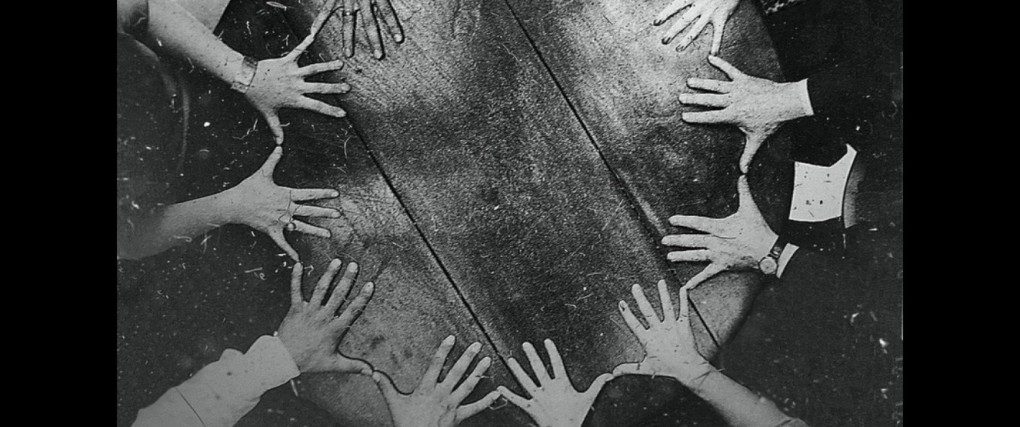 By Jake Cordero
By Jake Cordero
Everything we know about the world, all of our reality, we know through signs. From the moment we wake up, until the moment we go to bed and even in our dreaming — this is how we experience the world. This is the “is” of our reality. It is the only reality we know.
We hear the whispering in the trees. A sign, no doubt, of a soft wind. We hear a knock at the door. A friend has arrived. A coolness on your shoulder? A tingle across your neck? All signs. We experience them during every moment of every day. And we interpret them, constantly, in order to make sense of our world. We make our judgments thoughtlessly, lazily, through habit.
But understand this: we cannot know what lurks behind the signs of our world, not for certain. We can only know the signs themselves. And so when we interpret signs, we make a leap of faith. We extract meaning from them (or at least we suppose that we do) but we cannot know what exists behind them. All we have to go on are our own intuitions.
Albert and I often get asked about the “reality” of The Austin Séance. This is a completely understandable question. People want to know what to expect when the lights go down. Our short answer always runs along these lines: you may experience signs during the séance — signs over which we have no control — and it is up to you to interpret their meaning.
It is my belief that the only thing we can know for certain — the only thing — is how we feel about the signs that surround us; that is, our intuitions of them. Because we experience our intuitions directly it can be said that they convey a direct truth: the truth of what we feel, of how we feel, and, by extension, a portion of who we are.
Consider, for example, a recipe for your favorite dessert. By reading that recipe, you can imagine the different ingredients that go into it and you can imagine the process of combining those ingredients. But what can you know about the dessert? You have to taste it, to experience it. Now consider after taking that first bite that you’re overcome by memories of your grandmother’s kitchen. This deeper meaning is not conveyed to you by the recipe, but rather by your direct experience. And this truth is a very powerful one because it is a truth about yourself. The same concept applies to music, to love, to anything else that stirs your heart.
Art and Wonder
Although we begin each sitting with a bit of pedagogy, it is the guided meditation and the séance experience itself that (not surprisingly) our guests find the most impactful. These direct experiences may elicit fear, or a sense of wonder, or jolt an old memory. They may prompt mental associations where none seemed to exist previously. Sometimes the signs resonate directly with sitters, in a very personal manner. It’s always from the darkness that our sitters extract the most meaning.
But is it right to interpret what happens in the séance room as signs of the paranormal? Or should we instead be led, exclusively, by cold hard reason?
Let me put the question another way: Isn’t it rational to take, as given, that our world is governed exclusively by cause-and-effect principles?
But here, too, I would submit that the signs of rationality, of cause and effect, are not things in themselves. Rather, they are internal concepts that help us make sense of the world. And perhaps — perhaps — they admit of important exceptions.
Think about your own sense of free will. It becomes very difficult to find a rational explanation for this concept if all phenomena are based on causal laws. If you tell me, for instance, that free will comes “from ourselves” then I would have to counter that in a purely rational world, even “ourselves” are subject to cause-and-effect laws. In a rational world, causal laws should control every aspect of our being and, by extension, pre-determine our every decision. Therefore, to insist that we possess free will is to insist that we posses an extra magic something that somehow is exempt from causal laws.
And yet I believe this. I believe our free will is real, even though a faith in pure reason should lead me to believe otherwise. I believe in that magic something.
I believe this strongly because I have a strong sense of my own identity as a free person. Attempting to convince me otherwise would be a fruitless enterprise, akin to convincing me that my own experiences of heat or cold are invalid. As the philosopher Henri Bergson states: “the self, infallible when it affirms its immediate experiences, feels itself free and says so.”1
Now, from my powerful direct intuition of my own free will I make a further leap of faith that others also possess free will. This then leads me to conclude that humans are not inanimate objects or mindless robots, but instead possess intrinsic value.
I call the expression of this magic something art. The experience of it, I call wonder. For some its existence confirms the strangeness of this world. For others it confirms the existence of the soul. But either way, it is through the signs of this magic something that we know the supernatural is possible.
For me (although perhaps not for Albert) this is the philosophy that undergirds The Austin Séance. We spend every night in the séance room searching for the signs of magic. And it is through this very personal search itself that we sometimes find it.
1Time and Free Will: An Essay On The Immediate Data of Consciousness, Henry Bergson, originally published by Swan Sonnenschein & Co., 1910.


1 comment on “Signs, Belief and Philosophy of The Austin Séance” Add yours →